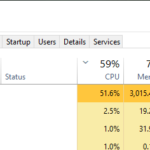In the world of computing, there are two basic ways to move data from one place to another: uploading and downloading.
Uploading is a process where files are sent from your computer to the internet using a connection while downloading is when you download or receive files onto your computer. You might upload videos to YouTube or other video-sharing websites while downloading songs onto your phone or computer. The key difference between uploading and downloading is that uploading happens on one end of the connection but downloading can happen on either end.

| Upload | Download | |
|---|---|---|
| Definition | The process of transferring data from a local device to a remote server or network. | The process of transferring data from a remote server or network to a local device. |
| Direction | Local device to remote server or network. | Remote server or network to local device. |
| Purpose | Sharing files, documents, or media with others. | Obtaining files, documents, or media from others. |
| Example | Uploading a photo to a social media platform. | Downloading a movie from an online streaming service. |
| Data Flow | Outbound from the local device to the network. | Inbound from the network to the local device. |
| Action | User initiates the transfer by selecting files to upload. | User initiates the transfer by requesting files to download. |
| Usage | Typically involves sending files to a central server or cloud storage. | Typically involves retrieving files from a remote server or website. |
| Time | The upload speed depends on the user’s internet connection. | The download speed depends on both the server’s capabilities and the user’s internet connection. |
| Bandwidth | Often limited by the user’s internet service provider (ISP). | Can be limited by the server’s capacity or network congestion. |
| Storage | Uploaded files are stored on a remote server or cloud storage. | Downloaded files are stored on the local device’s storage. |
| Common Methods | Uploading via file transfer protocols (FTP, SFTP), cloud storage services (Google Drive, Dropbox), or web forms. | Downloading via web browsers, file transfer protocols (FTP, HTTP), or specialized download managers. |
Table of Contents
Uploading
When you upload a file, it is sent from your computer through an internet connection to another device like a website. The website might save the files onto its own servers or share them with other computers.
There are often limits on how much data we can upload at once; we might need to wait until another time or work as part of a large group to complete the process successfully. Uploading requires both sending and receiving data, which makes it different from downloading.
Downloading
Downloads work in the opposite way: they come from the internet and go directly into our computers instead of being shared between devices. You might download apps, music, and videos onto your phone or MP3 player without needing an internet connection.
Downloads only require that one end of the connection be able to receive files, so they can happen either on your end or on the other. For example, when you download a file off of a website like YouTube, it is sent directly to your computer without having to go through the site’s servers.
This means that for something like watching Netflix offline later, you would need to download videos before traveling instead of saving them onto the app itself.
Conclusion
Despite these differences, uploading and downloading often happen at about the same time- it just depends on which end of the connection you’re working from. The only time this changes is when there are additional factors that get in the way; for example, if someone else has uploaded many large files there might not be space available for yours.
In a way, uploading and downloading is sort of like emptying a glass in two different ways: when it is on your end it takes water out of the glass, but when it is on the other end you are pouring water into the glass. While the processes are similar, remember that uploading sends data from your device to another while downloads get data onto your computer or phone.





